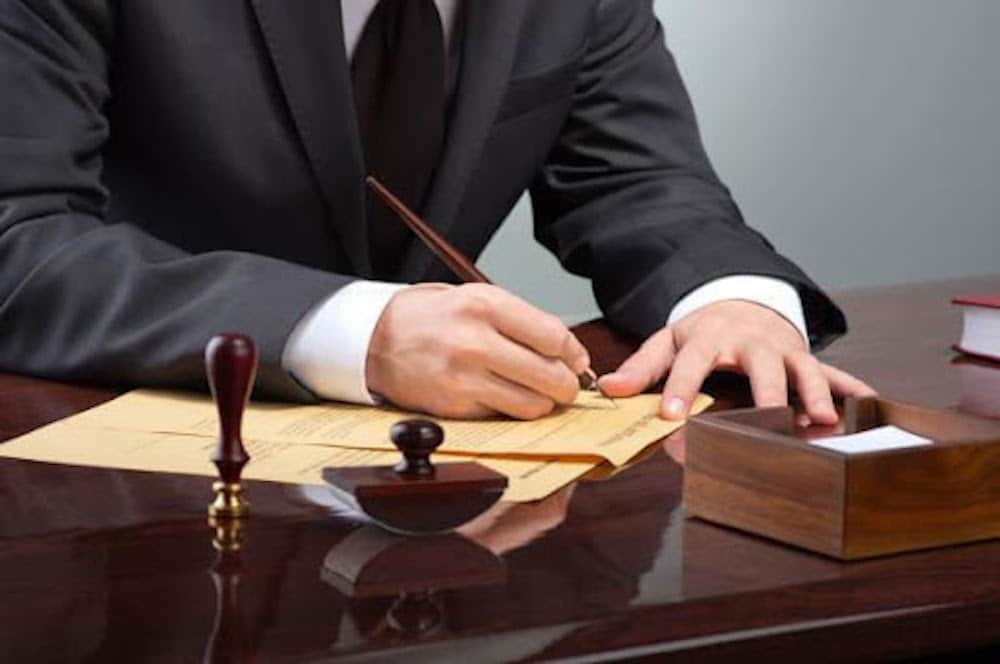In the entertainment industry, it is important to understand the acquisition process for literary properties such as movies, books, screenplays, teleplays, and the like. There are often numerous individuals and entities involved in creating artistic works. Thus when buying and selling these works, a buyer or seller must consider the interests of all involved parties. Providing a clean “chain of title”, or proof of ownership can avoid legal conflict over ownership down the line.
If a film is sold without full proof of legal title and ownership, the seller runs the risk of a lawsuit for violation of trademark, copyright infringement, invasion of privacy, defamation, or breach of contract, among others
What is the Chain of Title?
A “chain of title“ refers to the legal documents that establish the ownership of an artistic project or a motion picture. What constitutes the chain of title for a specific project can vary, but the records often include:
- Copyright registration certificates;
- Assignment agreements regarding the motion picture;
- Letters that indicate the right of representation;
- Distributor agreements;
- Sales agreement;
- Purchase agreements.
For a layperson, it can be difficult to understand all of the legalities concerning film and entertainment law. If you are trying to establish the “chain of title” to a film or other artistic work, consult with one of the experienced entertainment attorneys at The Hollywood Lawyer.
How a lawyer can assist a filmmaker
An entertainment lawyer can guide filmmakers through every phase of an artistic project. To establish the “chain of title” for a film, it will be important to include the following:
- Copyright search
- Reviewing of contracts
- Talent agreements
- Music Licensing
All of these elements, and others not mentioned, can impact the establishment of a “chain of title”.
Copyright Search:
If the artist has a copyright from the U.S Copyright Office, there is a presumption of a clean “chain of title”. Distributors always inquire about the distribution rights of a motion picture. Therefore, if you are selling a film, it is paramount to have a Certificate of Registration on file with the U.S Copyright Office.
The Copyright Office will have a wealth of information on file including the copyright number, the listed owner of the copyright, and the date the work was published. In a situation where a project has no copyright registration, you can easily apply for one. Proof of application, while not as persuasive as a certificate of registration, can help prove ownership.
Reviewing of Contracts:
While it is very helpful to have proof of copyright registration when proving ownership, it is not required under U.S. Copyright Law. Sometimes ownership can be proved through a review of contracts. Simply authoring a work of art establishes some degree of ownership and copyright. Further, a review of previously executed contracts can demonstrate ownership.
Talent Agreements:
There are different phases of film production such as development, pre-production, production, and post-production. The production company will require employment agreements with the actors, directors, film composers, film editors, and other crew. Therefore, it is essential to check all of the executed agreements related to a film as each may contain some evidence of an individual’s interest in the project.
Music Licensing
When lyrics or music has been written for a particular film, ownership of the music is always a question. Usually, music is licensed to be used in a film. The actual ownership rights of the music are not generally transferred. The licensing rights, synchronization, and other performing rights must be reviewed before a movie production begins.
An experienced entertainment lawyer can guide the filmmakers through the sale of any artistic work and protect the artist’s rights in any situation. Don’t let the complicated arena of entertainment law cost you your rights. Contact one of our experienced entertainment lawyers today.


